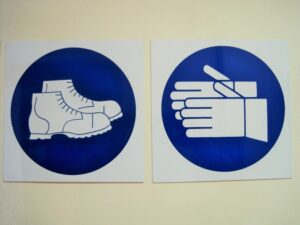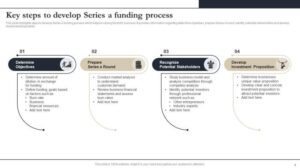Common job interview mistakes sets the stage for this enthralling narrative, offering readers a glimpse into a story that is rich in detail and brimming with originality from the outset.
Understanding these pitfalls is essential for candidates who want to present themselves in the best light possible. From lacking proper research about the company to poor body language, these common mistakes can significantly impact the outcome of an interview. By addressing these issues, candidates can enhance their confidence and increase their chances of landing their dream job.
Common Job Interview Mistakes
Many candidates make common mistakes during job interviews that can hinder their chances of success. Understanding these pitfalls can give candidates a significant advantage in presenting themselves effectively. This section highlights the top five mistakes candidates often make and discusses the importance of non-verbal communication and research prior to the interview.
Top Five Mistakes Candidates Make During Interviews
Awareness of common mistakes can help candidates avoid pitfalls during interviews. Here are five key mistakes often seen in interviews:
- Lack of Preparation: Failing to research the company or the role can lead to lack of confidence and inappropriate responses.
- Poor Body Language: Negative body language can create a bad impression and suggest disinterest or nervousness.
- Inadequate Responses: Giving vague or irrelevant answers can signal a lack of understanding or preparation.
- Talking Too Much or Too Little: Candidates must find the right balance in their speech to keep the interviewer engaged.
- Neglecting Follow-Up: Failing to send a thank-you note post-interview can be seen as unprofessional.
The Impact of Poor Body Language on Interview Outcomes
Body language plays a crucial role in how candidates are perceived during interviews. Negative body language, such as avoiding eye contact, crossing arms, or fidgeting, can convey disinterest or lack of confidence. On the other hand, positive body language, including sitting up straight, nodding, and maintaining eye contact, can help candidates appear more engaged and trustworthy.
The Importance of Researching the Company Before an Interview
Researching the company is vital for candidates to tailor their responses and demonstrate genuine interest. Understanding the company’s values, culture, and recent developments allows candidates to ask informed questions and align their skills with the company’s needs, significantly increasing their chances of making a good impression.
Business Innovation and Interviews
Innovative companies often adopt unique approaches to interviews that reflect their creative cultures. This section explores how these companies conduct interviews differently, along with examples of inventive techniques and a framework for integrating innovation into the interview process.
Innovative Approaches to Conducting Interviews
Companies known for their innovation typically implement unconventional interview strategies that focus on creativity and problem-solving. These methods include:
- Job Simulations: Candidates are placed in real-life scenarios relevant to the role to assess their problem-solving skills.
- Group Interviews: Involving multiple candidates can reveal teamwork and collaboration skills.
- Creative Problem-Solving Tasks: These tasks encourage candidates to think outside the box and demonstrate their thought processes.
Creative Interview Techniques Used by Successful Businesses
Successful businesses often utilize unique interview techniques to gauge candidate potential. Some examples include:
- Video Interviews with Real-Time Challenges: Candidates might be asked to solve a problem live, showcasing their analytical skills and creativity.
- Portfolio Reviews: Candidates present their previous work in a dynamic discussion, allowing interviews to delve deeper into their experience.
- Behavioral Assessments: These assessments evaluate how candidates handle various situations, providing insights into their decision-making processes.
Designing a Framework for Innovation in Interviews
To integrate innovation into the interview process, companies can adopt the following steps:
- Define the competencies needed for the role that align with the company’s innovative goals.
- Incorporate diverse interview formats, such as panel interviews and skills assessments.
- Regularly review and update interview techniques based on industry trends and candidate feedback.
Job Search Techniques
Effective job search strategies can significantly enhance a candidate’s chances of landing interviews. This section Artikels key techniques and the role of networking, along with a checklist for interview preparation.
Effective Job Search Strategies
Candidates should adopt multiple strategies to optimize their job search, including:
- Utilizing Job Boards and Aggregators: Websites like LinkedIn and Indeed list numerous job opportunities that candidates can apply to.
- Setting Up Job Alerts: This helps candidates stay updated on new listings that match their skills and interests.
- Engaging in Informational Interviews: Networking with professionals in desired industries can provide insider knowledge and job leads.
The Role of Networking in Finding Interview Opportunities
Networking is crucial in the job search process. Building professional relationships can open doors to opportunities that aren’t advertised publicly. Engaging in industry events, joining professional associations, and utilizing social media platforms like LinkedIn are effective ways to expand one’s network and discover potential job openings.
Checklist for Preparing for Job Interviews
Preparation is key to success in interviews. Here’s a comprehensive checklist:
- Research the company and its culture.
- Review the job description and align your skills with the requirements.
- Prepare answers for common interview questions.
- Practice your body language and verbal delivery.
- Prepare questions to ask the interviewer.
- Dress appropriately and ensure you arrive on time.
Business Management and Interview Preparation
Applying management principles to interview preparation can lead to better outcomes. This section discusses effective methods for evaluating candidates and compares traditional versus modern interview approaches.
Applying Management Principles to Interview Preparation
Management principles can enhance the interview process by ensuring a structured approach. Utilizing frameworks such as STAR (Situation, Task, Action, Result) helps in evaluating candidates consistently based on their past experiences and behaviors.
Methods for Evaluating Candidates from a Management Perspective
Various methods can be used to evaluate candidates effectively:
- Structured Interviews: These involve standardized questions that ensure each candidate is assessed on the same criteria.
- Scoring Rubrics: A scoring system can quantify candidate responses, making it easier to compare candidates objectively.
- Reference Checks: Gathering feedback from previous employers can provide additional insight into a candidate’s capabilities.
Comparing Traditional vs. Modern Approaches to Business Interviews
Traditional interviews often rely on a straightforward Q&A format, while modern approaches emphasize a more interactive and engaging experience. Modern interviews may incorporate technology, such as video conferencing tools and assessment software, to streamline processes and enhance the candidate experience.
Marketing Direct and Interview Strategies
Effective marketing strategies can significantly enhance a candidate’s personal brand during interviews. This section discusses key messages candidates should communicate and a promotional plan to leverage personal strengths.
Enhancing Personal Branding for Interviews
Candidates need to focus on their personal branding to stand out in interviews. Key strategies include:
- Online Presence: Maintaining a professional LinkedIn profile can showcase your skills and accomplishments.
- Consistent Messaging: Ensure that your verbal and non-verbal communication aligns with your personal brand.
- Networking: Engage with industry professionals to build a reputation within your field.
Key Marketing Messages Candidates Should Communicate
During interviews, candidates should clearly communicate their unique value proposition. This includes:
- Highlighting relevant skills and experiences that align with the job requirements.
- Emphasizing adaptability and willingness to learn.
- Articulating a passion for the industry and the specific company.
Promotional Plan for Leveraging Personal Strengths in Interviews
To effectively leverage personal strengths during interviews, candidates can develop a promotional plan that includes:
- Creating a personal elevator pitch summarizing key accomplishments.
- Utilizing storytelling techniques to present experiences that showcase strengths.
- Preparing tailored examples that align with the company’s needs and values.
Business Networking and Its Importance
Networking is a critical component of the job search process that can lead to valuable opportunities. This section explains its significance and offers tips for effective networking.
The Significance of Networking Before and During the Job Search Process
Networking can provide candidates with insider knowledge about job openings and company cultures. Establishing connections within desired industries can also lead to referrals, greatly enhancing a candidate’s prospects.
Tips on How to Effectively Network in a Professional Setting

Here are several effective networking strategies:
- Attend industry-related events, conferences, and seminars.
- Join professional organizations to meet like-minded individuals.
- Engage in online communities and discussions relevant to your field.
Success Stories of Candidates Who Benefited from Networking
Numerous candidates have secured positions through networking. For example, a candidate might attend a local industry meetup, connect with a hiring manager, and later receive a referral for a job that was not publicly advertised. Such stories highlight the power of networking in achieving career goals.
Resumes and Cover Letters
An effective resume and cover letter are vital for capturing the attention of potential employers. This section details how to craft compelling applications and avoid common pitfalls.
Crafting Effective Resumes and Cover Letters
Candidates should focus on creating tailored resumes and cover letters that reflect their strongest qualifications. Key elements include:
- Clear Formatting: Ensure that your resume is easy to read and visually appealing.
- Tailored Content: Customize your application materials for each specific job to highlight relevant experiences.
- Active Language: Use action verbs to describe accomplishments and responsibilities effectively.
The Importance of Tailoring Applications
Tailoring applications is crucial for standing out in a competitive job market. Employers appreciate candidates who demonstrate a clear understanding of the job and align their skills with the company’s needs.
Elements Every Resume Should Include to Impress Interviewers
A strong resume should contain specific elements, including:
- Contact Information: Name, phone number, and professional email.
- Professional Summary: A brief overview of relevant skills and experiences.
- Work Experience: Detailed descriptions of previous roles and accomplishments.
- Education: Relevant degrees and certifications.
- Skills: A list of pertinent skills related to the position.
Business Productivity in Interview Processes
Enhancing productivity within the interview process can lead to more efficient hiring. This section identifies techniques for improving productivity and discusses the role of technology.
Techniques to Enhance Productivity in Interview Scheduling and Conducting
Organizations can implement various techniques to streamline the interview process:
- Use scheduling software to coordinate interviews efficiently.
- Establish clear criteria for candidate evaluation to save time during assessments.
- Conduct preliminary interviews via phone or video to filter candidates effectively.
The Role of Technology in Streamlining Interview Workflows
Technology plays an essential role in enhancing productivity. Tools such as applicant tracking systems (ATS) can automate the screening process, while video conferencing tools facilitate remote interviews, saving time and resources.
Productivity Improvement Plan for HR Teams Managing Interviews
To improve interview productivity, HR teams can consider:
- Creating standardized interview questions to ensure consistency.
- Implementing a feedback loop to continuously improve the interview process.
- Training hiring managers on best practices for interviewing.
Sales Management and Interview Techniques
Sales skills can be a significant asset even in non-sales roles. This section discusses how candidates can showcase these skills during interviews and how to evaluate sales potential.
Showcasing Sales Skills During Interviews for Non-Sales Roles
Candidates can highlight transferable sales skills, such as communication and persuasion, during interviews. Examples might include articulating how they’ve successfully convinced others of their ideas or how they’ve managed relationships effectively.
Evaluating a Candidate’s Sales Potential During Interviews
Hiring managers can assess sales potential through specific evaluation methods:
- Behavioral Questions: Asking candidates to describe past experiences in which they demonstrated sales-like qualities.
- Role-Playing Scenarios: Candidates may be asked to sell a product or idea in a mock scenario.
- Performance Metrics: Inquiring about previous sales targets and achievements can provide insight into a candidate’s ability.
Comparing Successful Sales Interview Techniques Across Different Industries
Different industries may employ varying sales interview techniques. For instance, tech companies may focus on technical knowledge and problem-solving, while retail businesses might emphasize customer service and relationship-building abilities.
Workplace Communication and Interview Success
Effective communication is essential for success in interviews. This section explains the role of communication and identifies common pitfalls candidates should avoid.
The Role of Effective Communication in the Interview Process
Clear and concise communication is crucial during interviews. Candidates must articulate their thoughts effectively to convey their qualifications and enthusiasm for the position.
Communication Pitfalls Candidates Should Avoid
Candidates must be mindful of potential pitfalls, such as:
- Using jargon or overly complex language that might confuse the interviewer.
- Interrupting the interviewer or failing to listen actively.
- Providing overly long or unfocused answers that stray from the question.
Strategies for Improving Verbal and Non-Verbal Communication During Interviews
Improving communication skills can enhance interview performance. Candidates can employ strategies such as:
- Practicing mock interviews to refine responses and body language.
- Recording practice sessions to identify areas for improvement.
- Focusing on active listening by summarizing questions before answering.
Risk Management in Hiring Processes
Poor hiring decisions can lead to significant risks for organizations. This section discusses potential risks associated with interview performance and strategies for mitigating these risks.
Potential Risks Associated with Poor Hiring Decisions
Hiring the wrong candidate can result in various risks, including poor team dynamics, decreased productivity, and financial loss. Organizations must be aware of these risks when evaluating candidates.
Strategies for Mitigating Risks in the Interview Process
To mitigate risks, companies can implement the following strategies:
- Conduct thorough background checks to verify candidate information.
- Utilize structured interviews to ensure consistent evaluation criteria.
- Involve multiple interviewers to gain diverse perspectives on candidates.
Framework for Conducting Risk Assessments During Candidate Evaluations

A risk assessment framework can enhance decision-making during candidate evaluations. Key steps include:
- Defining risk factors relevant to the role and organization.
- Establishing criteria to evaluate candidate risk levels.
- Documenting assessments and decisions for future reference.
Small Business Interview Practices
Small businesses face unique challenges in the interview process compared to larger corporations. This section compares practices and offers tips for attracting top talent.
Comparing Interview Practices Between Small Businesses and Large Corporations
Interview practices can vary significantly between small businesses and larger corporations. Small businesses often prioritize cultural fit and flexibility, while larger corporations may emphasize standardized processes and extensive resources for candidate evaluation.
Unique Challenges Small Businesses Face in the Interview Process
Small businesses may encounter challenges such as limited resources for screening candidates and the difficulty of competing with larger companies for top talent. They often need to be more creative in attracting candidates.
Tips for Small Business Owners on Attracting Top Talent
Small business owners can improve their interview processes by:
- Highlighting the unique culture and benefits of working for a small business.
- Offering incentives such as flexible working conditions or professional development opportunities.
- Building a strong employer brand through positive employee testimonials and community engagement.
Strategic Planning for Interviews
Strategic planning can significantly improve the effectiveness of the interview process. This section explains how to enhance interviews and the importance of aligning practices with business objectives.
How Strategic Planning Can Enhance the Interview Process
Strategic planning involves setting clear objectives for the interview process, ensuring alignment with the organization’s overall goals. This can lead to improved candidate selection and a better fit within the company culture.
Key Strategic Goals That Should Guide Interview Preparations
Key strategic goals for interview preparations may include:
- Identifying the skills and traits essential for success in the role.
- Ensuring diversity and inclusion in the candidate pool.
- Enhancing the candidate experience to promote positive employer branding.
The Importance of Aligning Interview Practices with Business Objectives
Aligning interview practices with business objectives ensures that hiring decisions support the company’s mission and values. This alignment fosters a cohesive work environment and promotes long-term success for both the employees and the organization.
Final Summary
In conclusion, recognizing and avoiding common job interview mistakes is crucial for candidates aiming for success. By preparing adequately and being aware of these pitfalls, job seekers can approach interviews with greater confidence and poise. Embracing these insights transforms the interview experience from merely a daunting task into an opportunity for growth and success.
User Queries
What are the most common job interview mistakes?
Some of the most common mistakes include failing to research the company, not practicing answers to common interview questions, and displaying poor body language.
How can I improve my body language during an interview?
Maintain eye contact, offer a firm handshake, and sit up straight to convey confidence and engagement.
Is it important to ask questions during an interview?
Yes, asking questions shows your interest in the role and helps you determine if the company is a good fit for you.
How can I prepare effectively for a job interview?
Research the company, practice common interview questions, and prepare relevant questions to ask the interviewer.
What should I wear to an interview?
Dress professionally, suited to the company’s culture, aiming for a polished and neat appearance.



